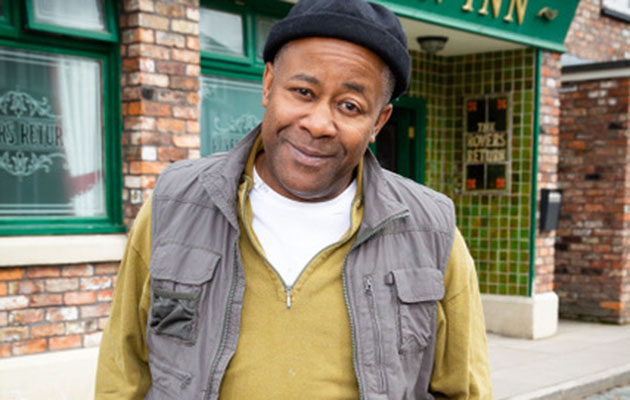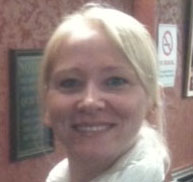Coronation Street star reveals he was a victim of racism as a young actor

The latest updates, reviews and unmissable series to watch and more!
You are now subscribed
Your newsletter sign-up was successful
Want to add more newsletters?

ONCE A WEEK
What to Watch
Get all the latest TV news and movie reviews, streaming recommendations and exclusive interviews sent directly to your inbox each week in a newsletter put together by our experts just for you.

ONCE A WEEK
What to Watch Soapbox
Sign up to our new soap newsletter to get all the latest news, spoilers and gossip from the biggest US soaps sent straight to your inbox… so you never miss a moment of the drama!
Coronation Street star Trevor Michael Georges: "It’s taken a long time to actually feel like ‘Yeah, this is my country’ and not just because I’ve got a passport and a birth certificate."
Coronation Street star Trevor Michael Georges has spoken about his experience of racism in the UK, and revealed how a member of the Womens Institute complained about him being on National Trust property.
The actor, better known as builder Ed Bailey, said the incident happened at the start of his career, when he was performing at the Dunham Massey estate in Cheshire.
Georges explains: “One of my first jobs was with the Young National Trust Theatre. It was a theatre put together by the National Trust, and we performed for school kids on National Trust sites like that huge estate in Dunham Massey.
“I was the only black actor in the company. We had the run of the entire estate, and could use the building how we wanted. One day, the director came in, absolutely fuming.
“If you’ve been to a National Trust site, there’s normally lovely ladies from the Women Institute, sat by the ropes. And the WI contingent at this particular venue had complained that a black person was being allowed the run of the house. Which was an interesting complaint. It did take my breath away.”
He continues: “The rest of the company were appalled, and the director said ‘Wait till I tell them you’re a member of Glyndebourne Opera’s chorus!’ I said ‘Why do I need a white seal of approval to come in here and do my job?’
The latest updates, reviews and unmissable series to watch and more!
“So there was also this accidental patronising, where people wanted to show that they were all for the black class, but were still missing the point through wanting to help too much.”
Georges, who grew up in Southall, London, says that huge strides have been made regarding racial prejudice and discrimination, leaving him feeling “very positive” for the future.
“I experienced all the race riots [in Southall, in 1979], and the abuse we received from The National Front was a norm during my upbringing that most of us accepted, because it didn’t feel like our country,” he adds.
“It’s taken a long time to actually feel like ‘Yeah, this is my country’ and not just because I’ve got a passport and a birth certificate. I do feel I can go into certain places.
“The level of racism has diminished to the point that I feel very positive today. People are much more educated about many more aspects of racism.”

When she is not writing about soaps, watching soaps, or interviewing people who are in soaps, she loves going to the theatre, taking a long walk or pottering about at home, obsessing over Farrow and Ball paint.

